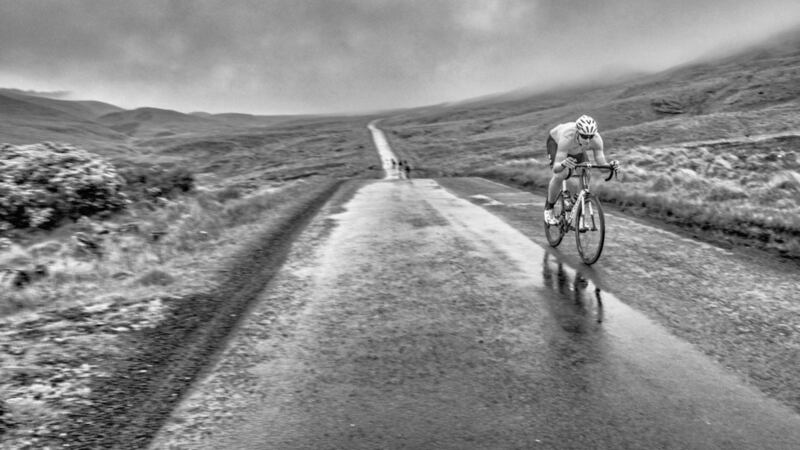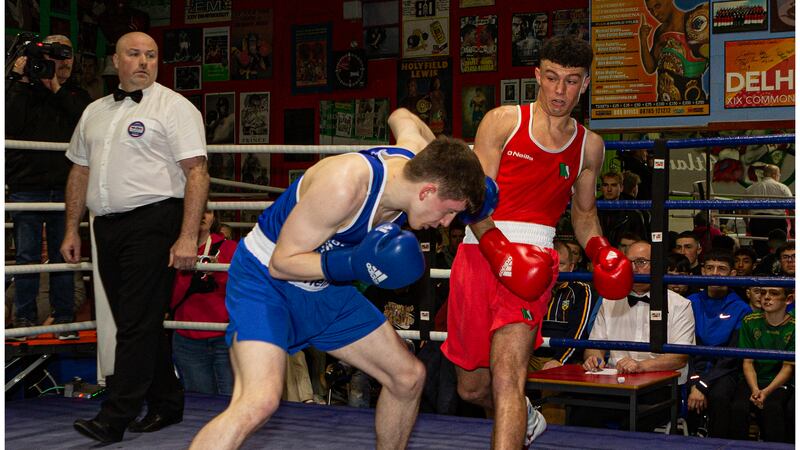The boss on my first job got me to take one of those personality tests. To be clear, it was part of a management programme. Well, that’s what he said.
Turned out I don’t adapt very well to sudden change. This was news to me, but I have since learned that it’s 100 per cent true.
Another thing I’ve learned with the passing of time is that knowing something about yourself doesn’t necessarily make you respond any better.
After closing the gym on St Patrick’s Day, I failed miserably to adapt to the new reality.
While I kept lifting weights, I went 10 days without getting on my bike. Ten days. It’s inconceivable.
Ten days glued to the phone. Ten days of eating like a pig. Ten days of box-sets. (I watched the eight episodes of The Stranger in one sitting).
I knew from WhatsApp groups at my gym that other people had hit a similar slump. Men and women who normally live with monk-like discipline were eating and drinking themselves into oblivion.
‘Natalie’ revealed she was ‘baking like Mary Berry’. Churning out cheesecakes on an industrial scale – she was also eating most of them herself. Others described similar conduct.
But escapism is never the answer. In the long term, it brings neither comfort nor contentment. In the midst of my 10 days of slobdom, the Maradona documentary provided a timely wake-up call.
Watching an obese, unfit and pathetic looking Maradona waddling around a five-a-side court was a genuinely depressing sight. And it was like a visit from the Ghost of Christmas Future.
On Day 10, I got back on the bike. Twenty five years ago, I was told a disciplined man is a happy man. It’s been a guiding principle ever since. Discipline works for me. The bike works for me.
To quote the late Italian cyclist Michele Scarponi: “When I ride my bicycle, life seems light.”
Being caged inside all day is not good for you. When you are out there in the great wide open, rolling along the roads – all that angst evaporates. The aggression vanishes. The mind opens. (I get ideas for this column). And life is light again.
While out cycling these past few days, it was genuinely uplifting to see the number of people who have discovered the pleasure of walking.
Hopefully, the hundreds of people who are discovering the joy of this simple pastime will continue the habit when the lockdown is over.
Sixty per cent of the population is overweight or obese. We spend too much time stooped over steering wheels and desks.
We need to eat less rubbish and do more exercise. We need to get out more. The best way to start is by walking.
The physical and mental benefits of this simplest form of exercise are indisputable.
The Danish philosopher Soren Kierkegaard walked nearly every afternoon. A highly strung individual, walking was how Kierkegaard relieved his stress. In a letter to his sister-in-law, he wrote: “Every day I walk myself into a state of well-being and walk away from illness; I have walked myself into my best thoughts, and I know of no thought so burdensome that one cannot walk away from it.”
In February 1882, Nikola Tesla was walking through a city park in Budapest when he got the idea for the rotating magnetic field.
It’s a fundamental principle in physics which forms the basis for MRI technology. It’s considered one of the most important scientific discoveries of all time.
Nietzche said: “It’s only ideas gained from walking that have any worth.”
From Charles Darwin to Ernest Hemingway to Steve Jobs – they were all walkers.
Aristotle conducted his lectures while walking the grounds of his school in Athens. His students were known as the peripatetics – Greek for meandering or walking about.
After writing from nine in the morning until two in the afternoon, Charles Dickens would go for a long walk.
When Dickens couldn’t sleep at night – which was often – he’d tramp London’s streets until dawn.
Dickens himself said: if he couldn’t walk “far and fast,” he would “explode and perish” from the psychological burden of remaining still.
Beethoven typically worked from sun-up through mid-afternoon, taking several breaks to “run out into the open” and work while walking.
He carried sheet music and a writing utensil in case inspiration struck. After a large midday meal, and regardless of the weather, Beethoven would take a longer, more vigorous “promenade” lasting the rest of the afternoon.
The composer Gustav Mahler and the poet William Wordsworth were marathon walkers. Mahler often went on four hour treks. Woodsworth liked to do a six-and-a-half mile circuit of lake Grasmere.
In Stillness is the Key, Ryan Holiday writes: ‘Buddhists talk of ‘walking meditation,’ or kinhin, where the movement after a long session of sitting, particularly movement through a beautiful setting, can unlock a different kind of stillness than traditional meditation.”
Of course, in these days of social distancing it’s also important to remember the safety protocols.
Last Friday evening while cycling back into Maghera, I came upon a young couple walking into the town. He had a cigarette in his left hand. His right arm was around her waist. They didn’t see me.
I yelled at them: “You’re supposed to be two metres apart.”
Startled, they turned around. He smiled. She did too.
I rode on. They must have thought I was joking.








